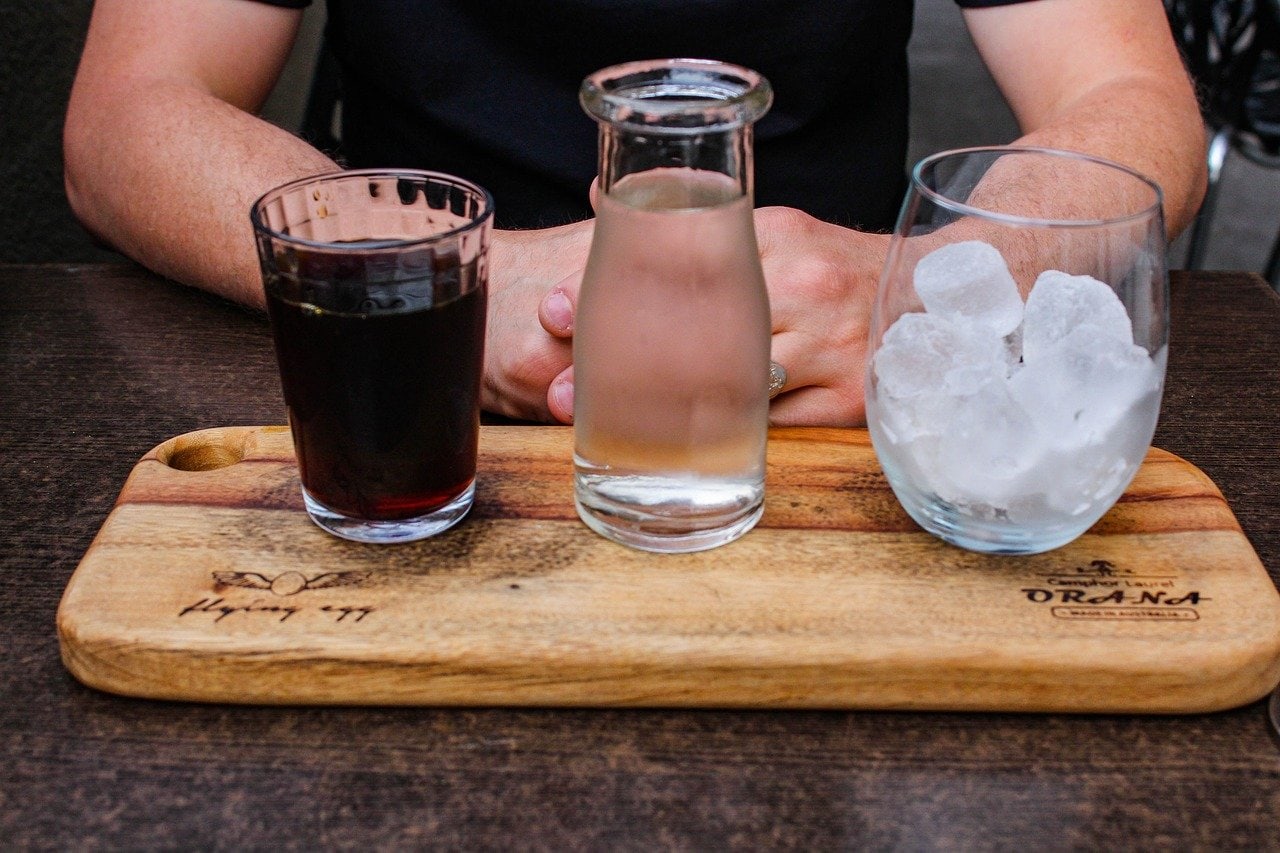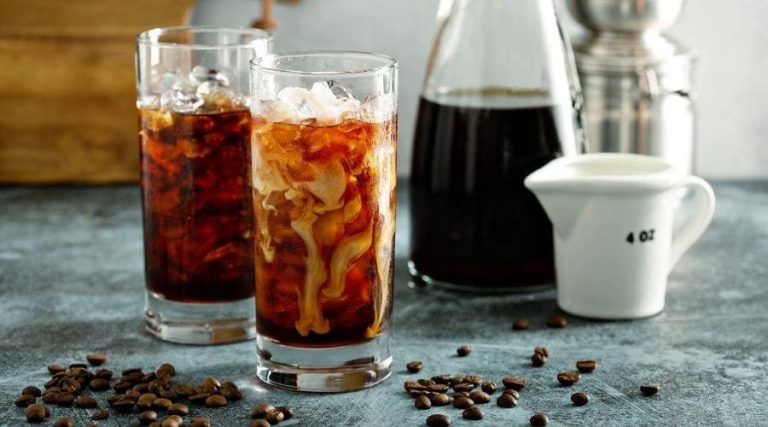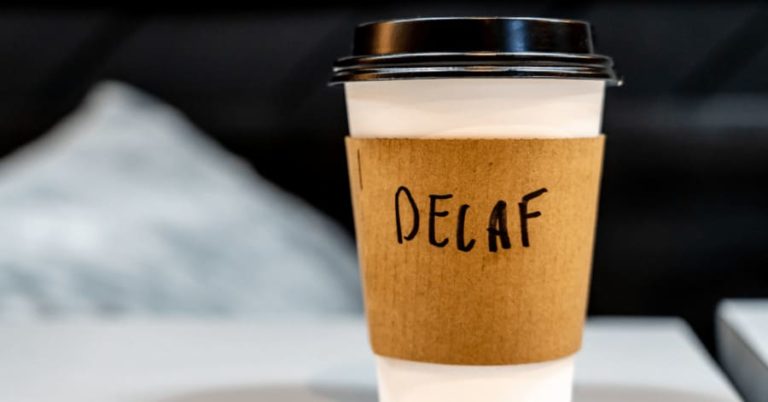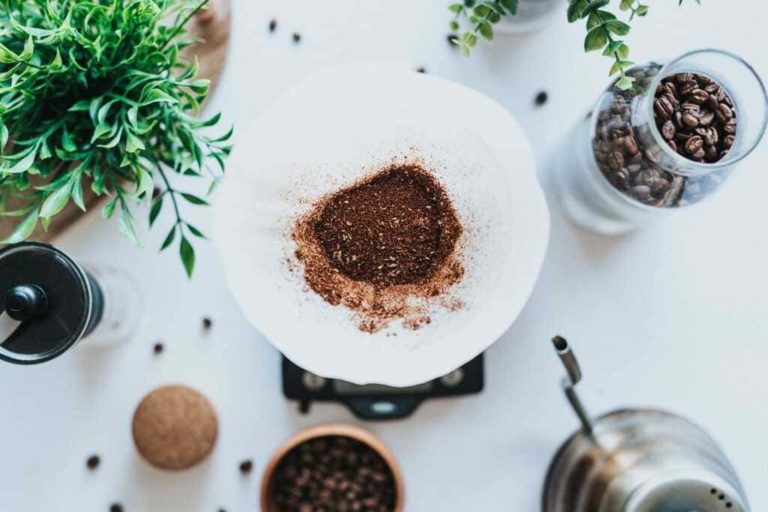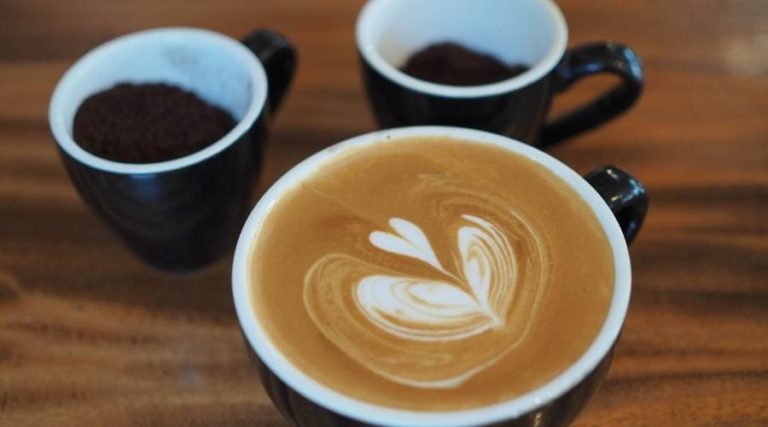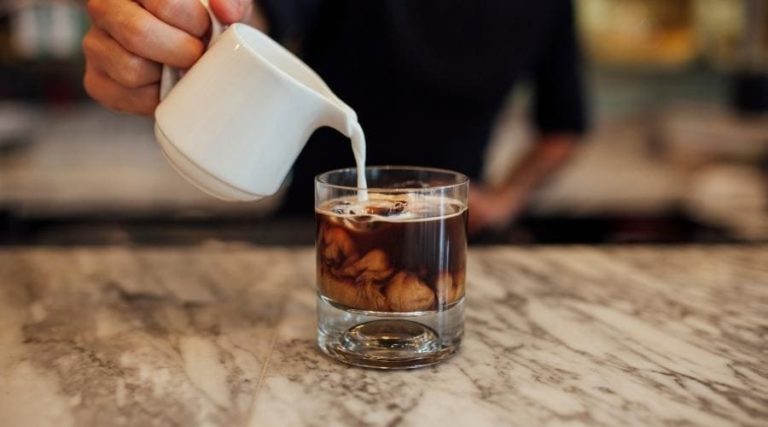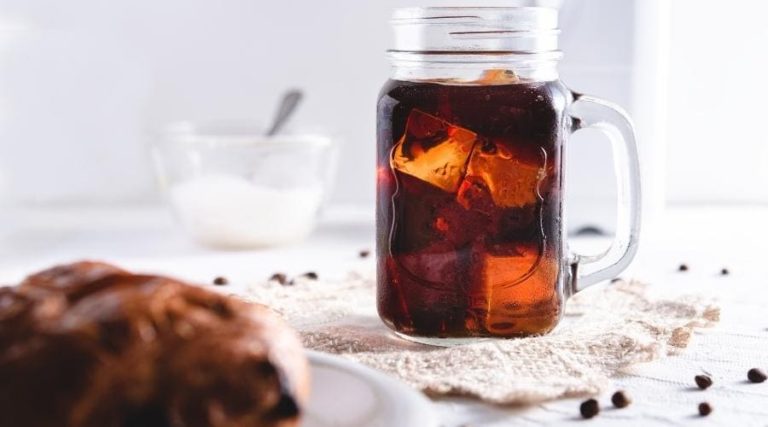The signature drink of the millennial club, the cold brew, has taken the consumer market by storm in the last few years. The sweeter, nuttier cousin of the good old cappuccino is estimated to reach a global market size of over 500 million. From your neighborhood café to the Starbucks around the corner from your workplace, every establishment has a ready stock of this trendy drink.
So, can coffee powder dissolve in cold water? The short answer is yes, and that’s how a cold brew is made. Water is often referred to as the universal solvent because of its ability to dissolve more substances than any other liquid found on our planet, and significantly break down those that it is unable to completely dissolve.
Therefore, considering that impressive resume, water, regardless of its temperature should be able to dissolve any type of coffee powder or extract flavor from the freshest of coffee beans. The temperature of the water, however, does determine the amount of time it takes to dissolve or break down a substance.
I don’t know about you, but the last time I learned about soluble substances in science class, hot water was always the key ingredient. So, what is it about the cold water and coffee powder combination that has created such a stir in the beverage consumer market? How does the temperature of the water affect the taste of the coffee? Is cold brew really better tasting than the conventional cup of coffee?
Read on for answers to all your questions about the coffee powder and cold water duo.
How fast does coffee dissolve in cold water?
When compared to hot water – not very fast, and I will get to the why of it in just a second. But, just to give you a brief overview of the difference in dissolution time – about 30g or 1 ounce of ground coffee or coffee powder would take less than 5 minutes to completely disappear, while the same amount will take more than 24 hours to completely disintegrate in cold water.
Although, if you are up for a workout, constant stirring may help you to reduce that time significantly. But that ultimately depends on the type of coffee you are using and the number of calories you intend to burn.
Why does coffee dissolve slower in cold water?
The dissolving process is dependent on a number of factors – the temperature of the solvent (water, in this case), the characteristics of the solute (coffee, in this case), and external pressure if any.
When water is heated, its molecules gain more energy and start to move around, in turn creating more friction between the coffee particles and the water leading to faster dissolution. In comparison, the cold water and coffee combination is much less energetic, with a slower rate of friction and therefore, slower dissolution.
However, heat is not the only way to get water excited. You can also apply external pressure, in this case stirring, to induce more friction between the two substances. This explains why dissolving coffee in cold water is much faster when you stir it.
Does sugar dissolve in cold water?
Yes, you’re right, sugar does dissolve in cold water. However, sugar as compared to coffee is a much less rigid solute. It only takes up to 10 minutes to dissolve an ounce of sugar in cold water. And just about 5 minutes if you stir it in.
Now, I know what you’re thinking. If coffee and sugar both can dissolve in water, why am I wasting 15 minutes of my time every morning boiling water for my coffee or standing in queue for the hot water dispenser? Why don’t I just dump my instant coffee into a glass of cold water and get on with my day?
Can you make instant coffee in cold water?
Technically, yes you could do that. Instant coffee will dissolve in cold water, and in just a minute or two. But let’s talk about this properly.
Does instant coffee dissolve in cold water?
Instant coffee is the chill, easy-going one in the coffee world. Regardless of the temperature of the water, whether hot, cold, or even room temperature, it will dissolve.
Instant coffee is basically dehydrated (Has already been brewed and then dried) regular coffee, which may or may not be mixed with powdered milk and sugar. It essentially exhibits the same characteristics as normal coffee when mixed with water – it will dissolve faster in hot water and a bit slower as the temperature is decreased, but it will dissolve, nonetheless.
As compared to ground coffee or coffee powder though, instant coffee is much faster to dissolve and can be stirred in even faster.
There are some coffee experts that actually believe that instant coffee tastes much better if it is first mixed with cold water and then poured into cold or hot water or even milk. Are you not completely convinced? Try it out for yourself!
You might also be wondering, does the caffeine content in instant coffee get affected when mixed with cold water?
Instant coffee with cold water caffeine content
The caffeine content in instant coffee should generally not be affected by the temperature of the water it is mixed in. However, something to note here is that the caffeine content in instant coffee is always lesser than in unbrewed coffee. So, if you are a fan of that sharp pick me up, instant coffee perhaps won’t work for you.
The quality of coffee beans used in instant coffee and the method of dehydration also affect the caffeine content. According to The Spruce Eats, Mount Hagen Instant Coffee is the top contender for 2021. The company uses ethically and organically produced Arabica Beans, which are freeze-dried.
Take inspiration from the best next time you go shopping and look for the type of beans used and the method of dehydration in your instant coffee.
Now that we have all our basics in place, let’s move on to the mystery of the cold brew.
What is a Cold Brew?
The Cold Brew is a drink made by seeping or soaking coffee beans pr ground coffee in cold water for 12 to 24 hours. The water slowly extracts the flavors, natural sugars, and caffeine content from the beans or particles resulting in a kind of coffee concentrate. The cold brew is very different from Iced Coffee, which is basically regular, hot coffee poured over ice.
Coffee with cold water benefits
There are of course more than a few reasons as to why the cold brew has become so popular in the last few years. Some of the benefits of this trendy drink are:
• Cold Brew is less acidic.
According to research done at Thomas Jefferson University, coffee brewed in cold water contains less acidic compounds. If you often suffer from acid reflux, a Cold Brew should be the drink of your choice.
• It is sweeter.
Due to the decreased acidity, a Cold Brew tastes sweeter than regular coffee. The duration of seeping dictates how much of the sweeter notes of the coffee beans are extracted.
• It contains more caffeine content.
As compared to a regular coffee that has a 1:20 water to coffee ratio, a Cold Brew has a 1:60 ratio.
• An aromatic Cold Brew makes the perfect morning drink on hot, summer mornings.
Apart from waking you up, a cold brew in the morning can also make you feel relaxed and refreshed.
Cold Brew coffee disadvantages
Like with everything else available to us in the consumer market, there are also certain disadvantages to the cold water and coffee duo:
• Cold Brew has fewer antioxidants.
The same study from Thomas Jefferson University also showed that as compared to its warmer counterpart, a Cold Brew has lesser antioxidant activity.
• Cold Brew takes longer to make.
As they say, precious things take time – a Cold Brew takes much longer to make than a regular coffee. However, this is something that can be managed by pre-preparing a large batch that can last you for days. It is still a bit of extra work to put in.
How to brew coffee in cold water?
I’m sure after all this talk about the Cold Brew, I’ve made you crave one, or if you’ve never tried it, extremely curious about it at least. Fear not, here’s how you can make your very own Cold Brew within the convenience of your home:
• Get your ratio right! Before you begin the process of seeping, it is essential to get your quantities right. For every 1 cup of water, you should be using ½ cup of ground coffee or 1/4 cup of beans. My tip is to use a little extra because once you have the Cold Brew concentrate, you can always dilute it by adding more water.
• The seeping process. Seep or soak the coffee in water for 18 to 24 hours. If you are short on time, an overnight soak also makes an acceptable Cold Brew, but at least 18 hours is the recommended duration.
• Strain the coffee grounds or beans. Once the seeping process is complete, use a fine-mesh sieve or strainer to separate the concentrate from the particles. You may also use cheesecloth, filter paper, or even an old handkerchief.
• Voila! Served the Cold Brew chilled or over ice and store the rest in the refrigerator.
Final Thoughts
There you have it – the cold water and coffee mystery has been solved and resulted in a delicious cup of freshness and aromas. It’s incredible that something so minute as the temperature of the water can affect the taste of the drink so much.
The Cold Brew has definitely been added to my go-to drinks after doing all this research. What about you? Are you ready to make the switch, or do you prefer your caffeine hot and steaming?
Regardless of how you choose to drink your coffee, I hope I have answered all your questions and maybe even convinced you to give the Cold Brew a try. Perhaps, the next article you read on the website would be much more enjoyable with a nice, chilled cold brew in your hand?

